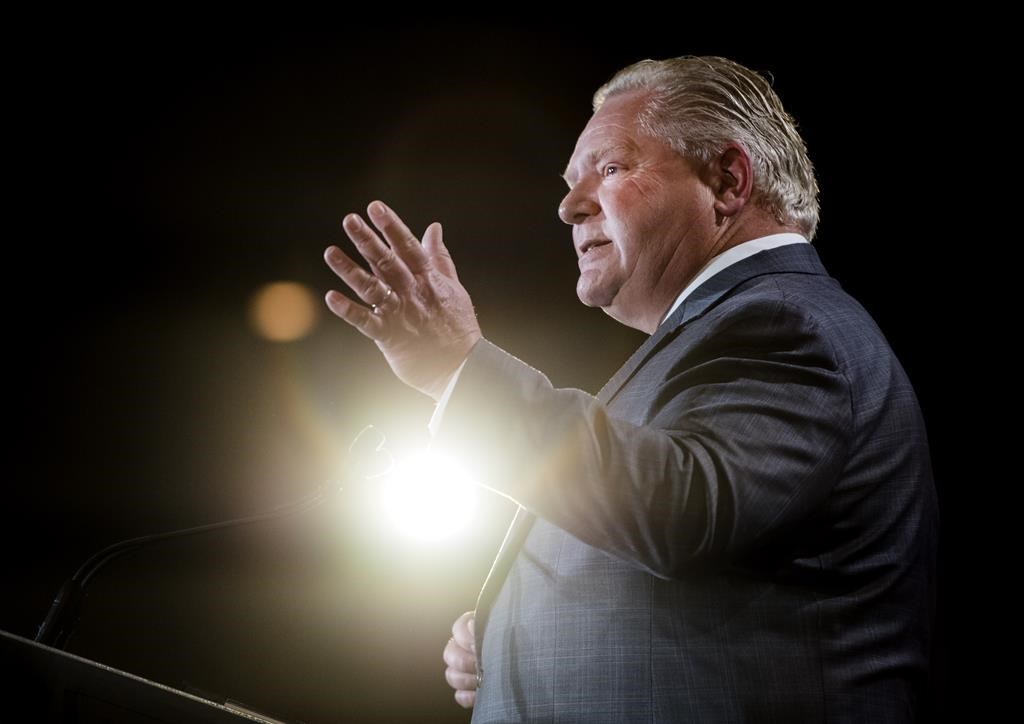Global News has learned from a source within the Ontario government that the province is considering a plan that would see the number of regional school boards slashed.

Currently, there are 76 public boards in Ontario. The plan would drastically reduce that number by merging smaller boards with one another.
The government’s rationale, sources said, is to streamline administration and cut board bureaucracy.
While an official timeline is not yet in place, the move would be in character for Premier Doug Ford’s administration.
Last year, the government slashed the size of Toronto City council in half. According to sources, the government is also planning to either dissolve or drastically cut the province’s 14 local health integration networks (LHINs).
A source with knowledge of the school board merger talks told Global News, “Education and health are the biggest line items in the budget. They have to find cost savings to get to where they want to be, this is one way to do that.”
The source also told Global the Toronto District School Board (TDSB) has not been discussed in connection with the mergers, but boards in smaller communities are on the table.
WATCH: What is the future of Ontario healthcare?

The TDSB is the largest school board in the country serving approximately 246,000 students in 582 schools. Some of the smaller boards include Moose Factory Island School Board which serves just one school, Rainy River District School Board with 14 schools, and Superior-Greenstone School Board with 17 schools under its administration.
“Supports for children in the classroom will be affected because resources available to schools will be spread more thinly across the boards,” an elementary teacher with the TDSB, who did not want to be identified, told Global News. “There was no mention of closing down school boards in Doug Ford’s election platform.”

Get daily National news
“This is a good alternative to increasing class sizes,” said another source with knowledge of the merger. “Previous governments and conservative leaders have considered doing this before but didn’t have the courage.”
The source added that they believed the move would not impact students.
“Reducing the bureaucracy without negatively impacting the classroom experience is a good way to save money.”
Global News reached out to Education Minister Lisa Thompson for comment on this story and late Friday her office sent a short statement.
“Our goal is to make sure every tax dollar has the greatest impact in the classroom,” Thompson said in the statement. “After more than a decade of mismanagement and lack of oversight in the education system, we’ve been reviewing every aspect of the portfolio since day one. At this time, we have no update to provide on this matter.”
Global News has learned that government documents have been drafted on the proposal but have not yet gone to Cabinet.
NDP Education Critic Marit Stiles told Global News in an interview she’s concerned about transparency.
“These kind of back room conversations that are happening are going to impact negatively, schools, and classrooms, and kids in those communities, and I think it’s going to have a particularly negative affect on northern and rural communities,” said Stiles.
The Davenport MPP also believes the government should find savings elsewhere.
“At the end of the day we shouldn’t be talking about cutting anywhere in education. There are lots of ways to improve education in this province and that might mean actually investing in education because this is a bare bones system that has been underserved for too many years.”
Former Education Minister Mitzie Hunter echoed Stiles sentiments about transparency.
“These major decisions that are affecting education and health, as we have just seen are being done behind closed doors not in a consultative manner with parents with school administration and we are just being handed those decisions.”
Hunter also believes the government could be testing the waters to gauge public reaction to the plan.
“It seems to me that they shoot up a trial balloon and see how much noise happens and in some instances they pull it back and in other instances they charge ahead. It is just creating more chaos in our education system that we don’t need.”








Comments